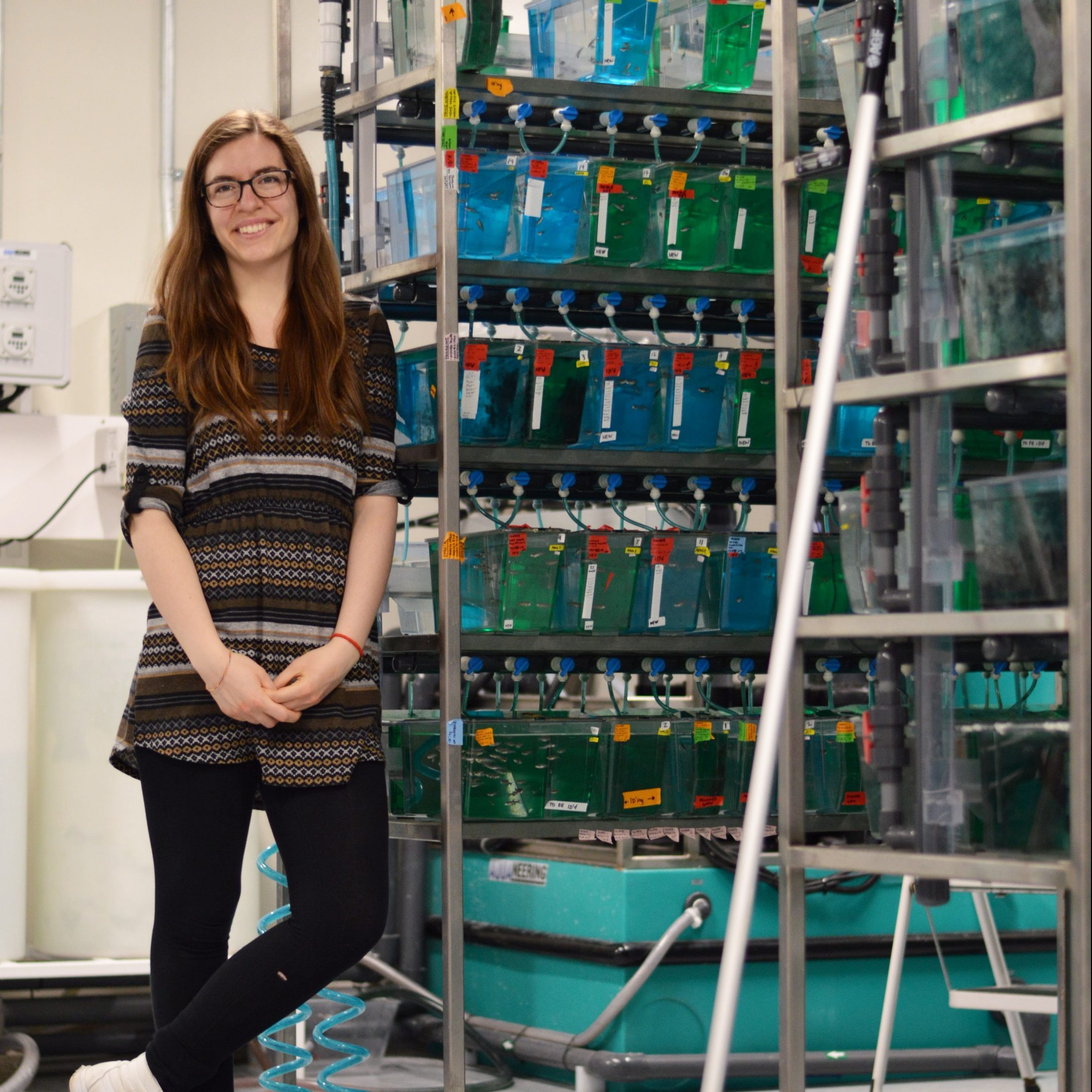 Amanda Miles’ PhD studies in Prof Vince Tropepe’s lab focus on the development, maintenance, and degeneration of the retina. “The eye is extremely complex; if you stop and think about how your eye develops properly and what allows you to see the vast wonders surrounding you- it’s incredible! Unfortunately, those with retinal diseases or degenerative conditions lack or will eventually lack sight. The possibility of having your research help these individuals is a huge motivator.”
Amanda Miles’ PhD studies in Prof Vince Tropepe’s lab focus on the development, maintenance, and degeneration of the retina. “The eye is extremely complex; if you stop and think about how your eye develops properly and what allows you to see the vast wonders surrounding you- it’s incredible! Unfortunately, those with retinal diseases or degenerative conditions lack or will eventually lack sight. The possibility of having your research help these individuals is a huge motivator.”
The development and final organization of the human and zebrafish retina are largely similar, so the Tropepe lab uses the freshwater minnow zebrafish as an animal model to understand human diseases of the retina. To examine the function of different genes in retinal development or in disease states, Amanda has used CRISPR technology to generate multiple different zebrafish mutant strains lacking a functional copy of each gene. Once generated, these mutants must be maintained and grown so that the Tropepe lab can analyse the effect of the mutations.
These zebrafish lines are maintained in the aquatics facility in CSB – which houses both the Tropepe and Bruce lab research fish (you will also find Buck lab turtles and Rodd lab guppies here!). Thousands of fish are held in flow-through tanks, on racks that continuously supply clean, fresh water to the fish. The maintenance of the facility, the feeding of the fish and the continuous monitoring of their health is the responsibility of all lab members.
“I have to give a huge amount of credit to Prof Ashley Bruce who does a tremendous job at making sure the facility keeps running. And keeping our fish healthy is so important for our research. It really is a collaborative effort between all Tropepe and Bruce lab members. For example, we rotate on a schedule who is feeding the zebrafish every day (including holidays!). So I always like to remind myself that although I’m the one doing my own experiments, many staff and lab members were involved to allow me to do it successfully- research is always collaborative one way or another!”
